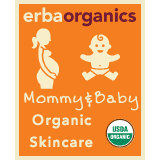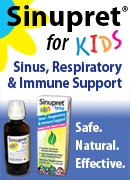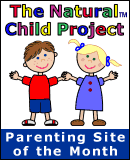| Many pregnant and
nursing moms want to stay as far away from synthetic medications
as possible. As a result, they look into using herbs and other natural
remedies as an alternative. Herbs can be a wonderful alternative
and many are very helpful. The problem arises when the assumption
is made that just because herbs are natural, they are 100% safe.
This simply isn't true. Herbs can be very powerful, some are potentially
dangerous, and all should be taken while under the supervision of
your doctor or a certified herbalist. One
of the herbs nursing women ask about most frequently is ginseng.
Many new mothers find themselves stressed out and fatigued. They
start to look for anything that will help them get through the
next harried day and sleepless night. Ginseng seems to be the
answer. However, most forms of ginseng are unsafe for nursing
mothers.
There are two different
categories of Ginseng: those that are true, or Panax ginsengs,
and those that are referred to as ginsengs simply because they
produce the same adaptogenic effects as true ginsengs. The true
Panax ginsengs are Chinese Ginseng, Korean Ginseng, and North
American Ginseng. The two other most common ginsengs are Siberian
Ginseng and Indian Ginseng. Both of these have no true relation
to ginseng.
Ginsenosides are
one of the sets of chemical compounds in Panax ginseng. These
ginsenosides make up the active ingredients in true ginsengs.
Ginsenosides have quite a few effects on the body. They alter
blood flow to the brain, raise blood pressure, lower blood sugar
levels, and stimulate the immune system. Ginseng also contains
several steroid compounds that mimic the effects of anabolic steroids.
One in particular, Panaxtriol, has very similar effects to estrogen
use, which is why Panax ginsengs are unsafe for prolonged use
in premenopausal women and shouldn't be used at all during pregnancy.
There have also
been reported pediatric cases of tachycardia and hypertension
that appear to be in direct correlation with the breastfeeding
mother's use of Panax ginsengs. However, as with most herbs, no
official studies or research has been done to determine the extent
of any effects Panax ginsengs, transferred through human milk,
might have on an infant. Logic would allow, though, that because
Panax ginsengs contain such strong chemical compounds, it would
not be wise to expose a baby's developing system to the effects.
If a nursing mother
still wants to take a Panax ginseng she should use extreme caution.
Watch the baby closely. Signs of adverse side effects would be
nervousness, shakiness, heightened anxiety, insomnia, skin rashes,
and diarrhea. She should also inform her baby's pediatrician that
she is taking Panax ginseng so that baby's heartbeat and blood
pressure can be closely monitored. The mother should also be aware
that Panax ginsengs could contribute to a low milk supply.
It is highly recommended,
though, that if a mother feels she needs help fighting stress
and fatigue she choose something other than Panax ginseng. Siberian
ginseng has the same adaptogenic effects on stress levels and
fatigue that any of the Panax ginsengs have. It does not, however,
contain the ginsenosides or steroids that Panax ginsengs do and
is safe for nursing mothers. Indian Ginseng is also an adaptogen,
and though not quite as effective, is also safe for nursing mothers.
05/2001
[development/includes/dee.htm]
|





